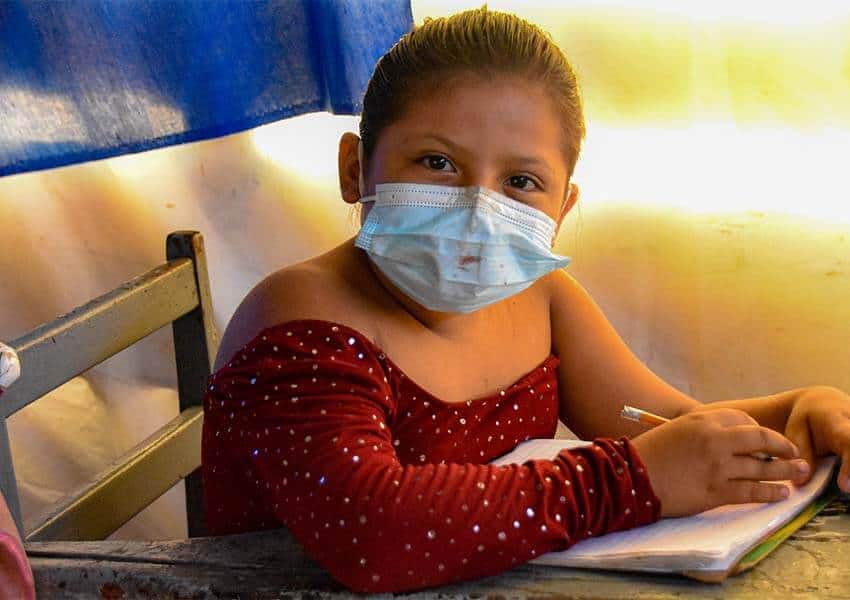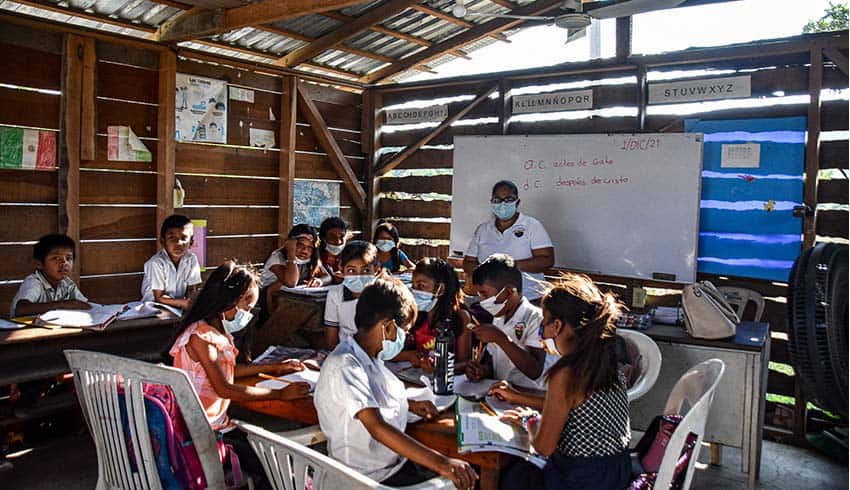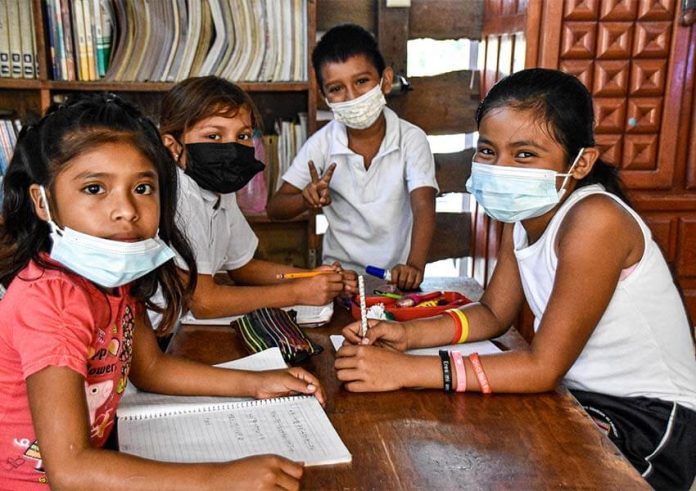It is a given that everyone deserves an education, but the reality in Mexico is that not everyone truly has access to public education. That was the case of a community of people who work and live at the Zihuatanejo city dump, people who live hidden away from the rest of the world.
Families who live at the landfill exist among piles of trash, eking out a living selling things they find there or redeeming recyclable bottles. As a result, education for the children there was nonexistent for years. That might still be the case today if it were not for the intervention of a group of people who decided to improve the children’s lives.
It all began in 2011 when a tourist from Chicago, David Lemon, booked a vacation at the Azul Ixtapa hotel. As many tourists do, he brought along a suitcase of clothes he and his family had outgrown with the idea to donate them to a worthy cause.
Gladys Acosta, who worked at the hotel, took him up a dirt road that led to the dump, where 45 to 50 families lived at the time. Lemon was shocked to find that none of the children there went to school, and he wanted to help.
He started by asking the hotel to pour a concrete slab, which personnel there arranged, and he sent money to construct the first building for the school, which the hotel also agreed to do. However, no students enrolled at first, so Acosta approached an employee’s wife, who was a retired nurse, Olga Sandoval, to help.

Sandoval agreed to donate her time because she knew that the children were a source of income for their families as scavengers and that unless they had an education, in all likelihood, adult life in the landfill would be their destiny if someone didn’t step in.
Sandoval opened the city dump’s first school with books and materials she already had and only five initial enrollees. She quickly realized she might attract more students if she had a lunch program. This decision swelled her numbers to almost 20.
Each day, she hauled food cooked in her kitchen down the long, dusty road between her house and the dump and taught as many students as happened to show up that day. Still, she needed help.
So Sandoval approached the Fort Garry Evangelical Mennonite church in Winnipeg, Manitoba, and asked them to build her a kitchen at the site so that she would no longer have to haul the food every day. The group had finished a project at a senior home outside of El Coacoyul, a community in the municipality of Zihuatanejo, and were looking for another one, so the group’s leader Sid Reimer told Sandoval that they were interested would look at the idea after returning the next year.
Impressed by what Sandoval had accomplished by the time the group was back in town, it decided to build her the kitchen — and stocked it too.
Each year afterward, they built more: a classroom, four buildings, one kitchen, an administrative office/library, a bathroom for the smaller children and one for the older kids. In appreciation to the Canadian group for making their dream a reality, Sandoval named the school Escuela Nueva Manitoba en México (the New Manitoba School in Mexico).
Eventually, Sandoval was forced to retire due to ill health, brought on by a massive fire at the dump that burned for nearly two years and created toxic fumes affecting her lungs. Over the last nine to 10 years, many others have gotten involved to lighten the load and improve conditions and the quality of education offered.
People like John McKay and his late wife Joan, as well as Gladys Acosta, who represents the Azul Ixtapa, each pay for a teacher’s salary and provide a meal once a month. Others purchase items like school uniforms, socks and shoes for each child. In addition, area church organizations lend their support and raise much-needed funds to keep the school operational as enrollment fluctuates between 80 to 100 students.
According to McKay, Ontoniel Peñaloza López, a new administrator hired this past month, and his wife, Sarai Santana, who teaches around 20 students in pre-kindergarten and kindergarten, have made tremendous improvements. In addition, the staff has acquired two other teachers: Violet for grades 1, 2 and 3 and Bernice with grades 4, 5 and 6.
We toured the dark but extremely well-built wood classrooms for the next half hour or so, and the attentive, orderly behavior of the students impressed me. Each teacher seemed to have their classrooms engaged. And, of course, most were eager to pose for pictures, although we tried to disrupt the class as little as possible.
Next we saw the kitchen, well-stocked and bustling with several cheerfully industrious volunteer moms who made sure food was prepared and ready on time. And then, as we were leaving, two cars pulled up the road and unloaded what appeared to be a group of tourists but was a cohort of dentists and assistants from Olympia, Washington.
The group has volunteered its time for many years, giving free dental care to the children of Ixtapa-Zihuatanejo and in outlying areas. Led by local dentist Dr. Cecelia Villavicencio and John Diviny, the group was a welcome sight for the school. Villavicencio informed me that to date, she and the team had seen over 80 children at the school and more from another.

One of the biggest hurdles the school has faced, in addition to the constant search for funds, is that it is not accredited by the state and thus receives no financial aid. However, the staff hopes to hire two more fully certified teachers to fill their growing need to achieve accreditation. Without accreditation, they will need to pay the new teachers with only the money they can raise themselves.
Zihuatanejo Mayor Jorge Sánchez’s government has assisted the school, and his family, which owns a cement business, has generously provided materials at a great discount. Also, to lighten the ongoing fundraising burden, some local businesses have been generous in hosting over the years.
The second hurdle is expanding the school to beyond grade six. In the past, very few students attempted to further their education at schools in Ixtapa or Zihuatanejo. For children never exposed to the outside world — even though it is just a few miles away — the transition was difficult, some of it due to bullying and generally the inability to fit in. All of them returned to their community within the year.
Thankfully, another school in La Puerta now has 16 students in higher grades who have graduated from Escuela Nueva Manitoba, but the goal is to have many more.
For that, they need sponsors.
Want to help? Sponsoring a student will cost you around US $350 per year for primary schooling. After that, the price goes to $575 for university tuition. It does not include books, living expenses, transportation, and other things. Often several families will sponsor one child.
If you can’t commit to that? “Financial donations are best,” McKay says, adding that donating books and supplies, while great, can be a burden too.
“Where to put it all is the main issue,” he says. “Sometimes we give things away that we can’t use ourselves. Money allows us to put the [donation] toward our needs at the time — our monthly food bill, for example, [which] is at 8,000 pesos and counting.”
- To find out more about ways to get involved as a sponsor, or to donate, visit Escuela Nueva Manitoba en México here.
The writer divides her time between Canada and Zihuatanejo.
